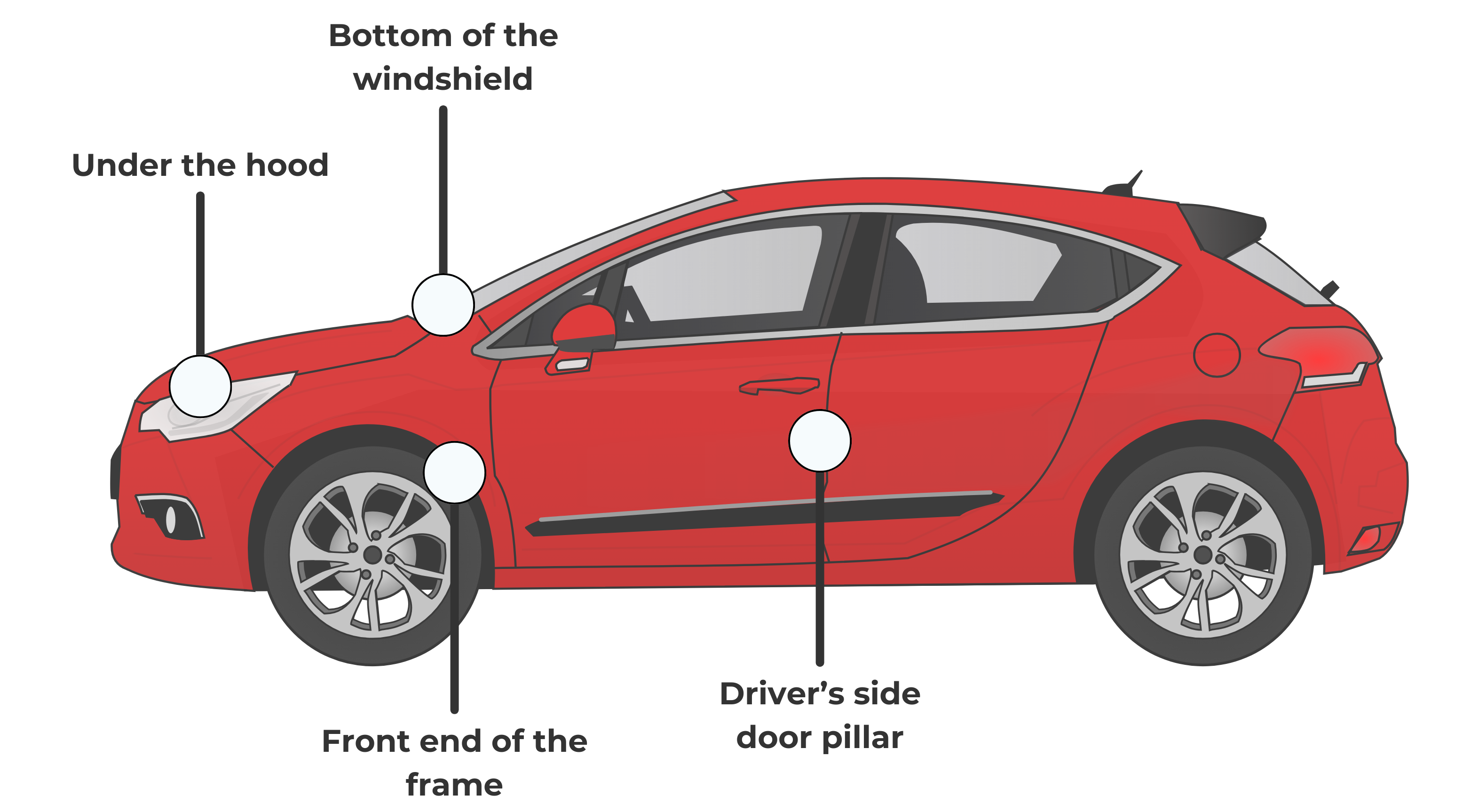 Are you driving or thinking about buying a Honda? Watch out — there could be serious safety problems hiding under the surface. You might not notice anything wrong until it’s too late. That’s why running a Honda VIN check free tool is so important.
Are you driving or thinking about buying a Honda? Watch out — there could be serious safety problems hiding under the surface. You might not notice anything wrong until it’s too late. That’s why running a Honda VIN check free tool is so important.
A free Honda VIN check can help you find recalls, past damage, or other problems that put you at risk. If you already own a Honda, this check can uncover issues you didn’t know about. If you’re shopping for a used one, it helps you avoid costly surprises.
In this quick guide, you’ll learn how to do a Honda VIN number check free tool. We’ll walk you through each step. You’ll also learn how to understand recall notices and take action fast. Knowing what to look for keeps you — and your passengers — safe on the road.
Want answers fast? Visit our Honda VIN Check, enter the VIN, and you’ll get the full story in seconds.
What Is a Recall and Why Does It Matter?
A vehicle recall is issued when Honda or the National Highway Traffic Safety Administration (NHTSA) finds a defect or safety issue that could put drivers and passengers at risk. These aren’t minor hiccups — we’re talking about problems that can lead to accidents, injuries, or even worse.
Common Reasons for Honda Recalls:
- Airbag inflator issues (especially the infamous Takata airbag recall)
- Faulty fuel pumps that can cause engine stalling
- Brake system failures that compromise stopping power
- Electrical malfunctions that could spark bigger problems
- Transmission defects that lead to rough shifting or failure to engage gears
- Steering problems that reduce driver control and safety
- Engine overheating due to coolant system failures or leaks
Ignoring an open recall isn’t just dangerous — it can hurt your wallet too by dragging down your car’s resale value. That’s why running a Honda VIN number check free tool should be a top priority for every current and future Honda owner. It’s quick, easy, and could literally save lives.
How a Honda VIN Check Free Can Reveal Open Recalls
When you do a free Honda VIN check, you can usually see if the car has any recall history. That means you’ll find out if Honda asked owners to fix a safety problem.
But there’s more. Depending on the VIN decoder you use, you might also learn about:
- Repair history
- Model specifications
- Fuel type and mileage
- Sales records
- Title and accident information
- Auto warranty
- Auto liens
- Market value and ownership cost
- Vehicle safety ratings from IIHS-HDLI and NHTSA
Where to Find the Honda VIN
You can locate your Honda’s VIN:

- On the driver’s side dashboard (visible through the windshield)
- Inside the driver’s side door frame
- On the vehicle registration, vehicle title, and insurance card
- Service record, bill of sale, and owner’s manual
👉 Related Article: How to Find Open Recalls Using a VIN Lookup
Step-by-Step Guide: Check for Honda Recalls Using a VIN
Want to know if your Honda has a safety recall? Just follow these easy steps:
Step 1: Find Your VIN
First, look for your car’s 17-digit VIN number.
You can find it:
- On the dashboard, near the windshield (driver’s side)
- On the driver’s door sticker
- In your car’s paperwork (like the registration or insurance)
Step 2: Go to a Trusted VIN Lookup Website
Next, open a trusted site that checks Honda recalls. A few good options include:
- VinCheck.info’s Honda VIN Check Free Tool: It gives you a Honda VIN number check free tool, plus vehicle history and active recalls.
- NHTSA Recall Lookup Tool: This is the official government tool.
- Honda Recall Lookup: Perfect if you already have an account with Honda.
Step 3: Type in the VIN and Start the Search
Now, enter your VIN into the search box. Then, click to search.
The site will quickly show if your Honda has any open recalls.
Step 4: Read the Recall Info Carefully
If your car has a recall, you’ll see important details like:
- What the problem is
- Why it might be dangerous
- How Honda plans to fix it
- If the repair, replacement, or refund has already been done
📌Bonus Tip: If there’s an open recall, schedule a repair right away. Honda dealers fix recalls for free!
What To Do If Your Honda Has an Open Recall
If your Honda VIN check shows an open recall, here’s what you should do:
1. Schedule a Repair
Contact your nearest Honda dealership. Recall-related repairs are free of charge and must be completed by an authorized service center.
2. Don’t Delay
Even if your vehicle seems to be functioning fine, ignoring a recall could lead to accidents or further mechanical issues.
3. Confirm Completion
After the service, verify through the official Honda recall site or your VIN check provider that the recall has been marked as resolved.
4. Keep Records
After the recall service is completed, keep a copy of the service report. This documentation is valuable for resale or warranty claims.
5. Stay Informed
Sign up for recall alerts from Honda or the NHTSA so you’re always aware of new issues that may affect your vehicle.
👉 Related Article: NHTSA Recalls Explained: What They Mean for Car Owners
Honda Owners, Don’t Skip This Free VIN Check—Your Car (and Wallet) Will Thank You
Doing a free Honda VIN check is one of the smartest things you can do to stay safe and avoid costly problems. If you already own a Honda or plan to buy one soon, checking the VIN for recalls helps you spot serious issues early. This simple step protects your money—and keeps you and your family safe.
Don’t wait for a letter in the mail — take control and decode your Honda’s recall status today using our free tool.
Honda Recall Check FAQs
What do I do if my VIN shows a recall but I never got a notice?
Even without a notice, you can take your Honda to a dealership for recall-related repairs. Notices may get lost if ownership information wasn’t updated.
Can I sell a Honda with an open recall?
Yes, but it’s not advisable. Open recalls can reduce buyer trust and affect the vehicle’s resale value. Consider resolving any recall issues before listing your vehicle.
Does a recall affect car insurance?
A recall itself doesn’t affect your premiums, but unresolved safety issues can become liability risks in the event of an accident.